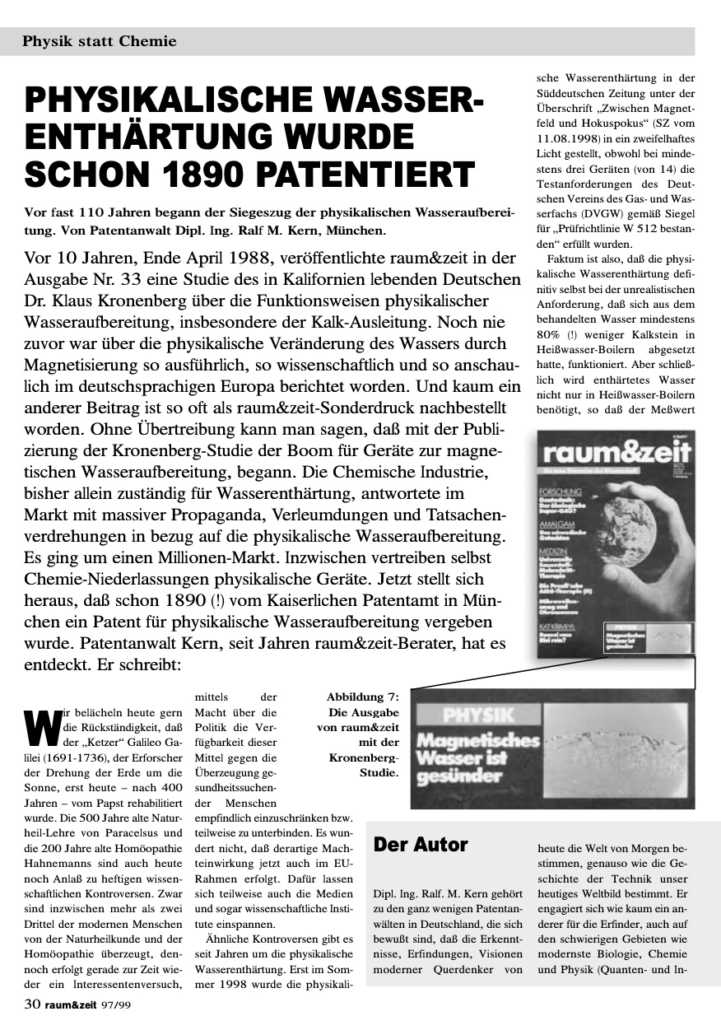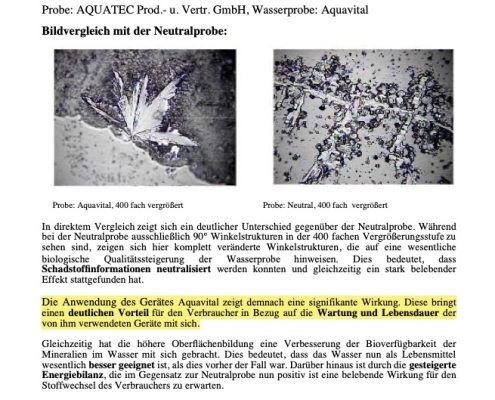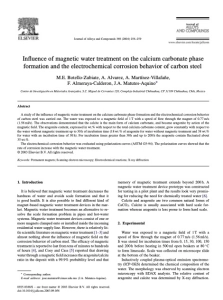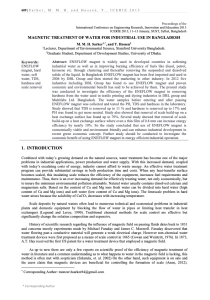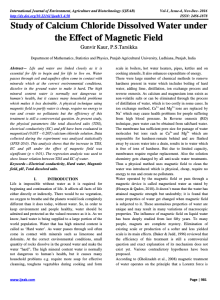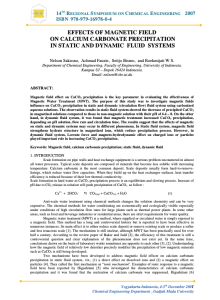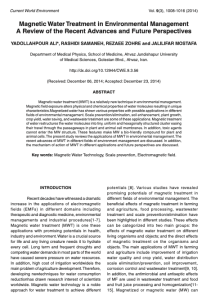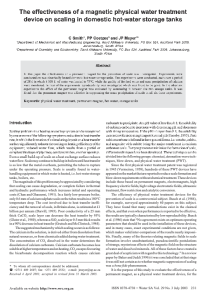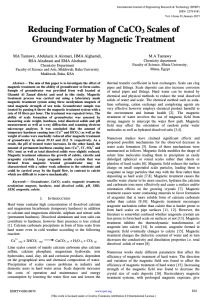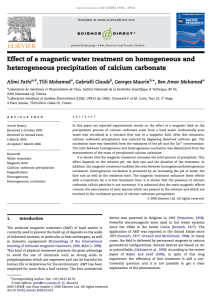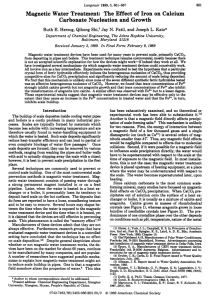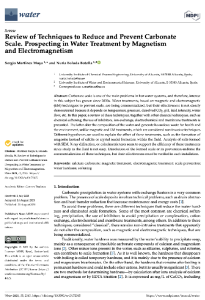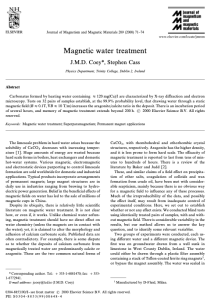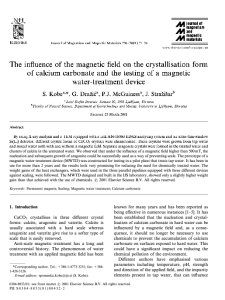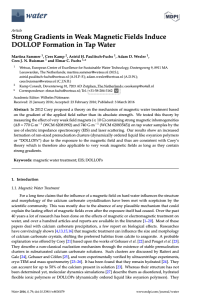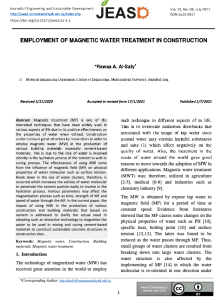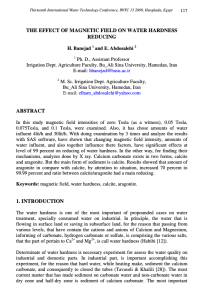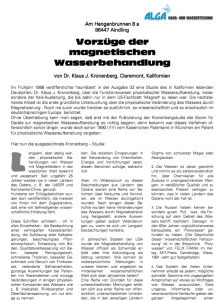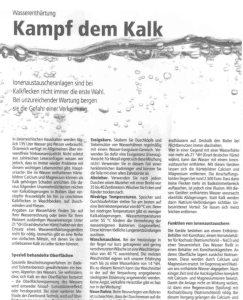The science behind Aquavital
How magnetic fields improve water quality – Extended version
Improving the quality of our water is a constant challenge. One of the biggest challenges is preventing limescale buildup caused by hard water. That’s where Aquavital comes in, an innovative device that uses magnetic fields to change the structure of lime-forming molecules, reducing the formation of scale. But how does that work exactly? Let’s take a look at the science behind it.
The chemistry of hard water:
Hard water contains high concentrations of dissolved minerals, especially calcium and magnesium. These minerals come from rocks and soils through which water flows. When water absorbs carbon dioxide (CO2) from the air or soil, it forms carbonic acid (H2CO3), a weak acid. This carbonic acid can react with minerals in the rock, especially calcium carbonate (CaCO3), to form calcium hydrogen carbonate (Ca(HCO3)2), which is soluble in water.
Structural formula of carbonic acid: H2CO3
Structural formula of calcium carbonate: CaCO3
Structural formula of calcium hydrogen carbonate: Ca(HCO3)2
This molecule is a dipole, which means that it has a positive and a negative pole. This dipole property allows molecules to bind to each other through magnetic attraction and form larger molecular structures or clusters. When the water is heated or evaporates, the calcium hydrogen carbonate breaks down to form calcium carbonate, known as solid lime.
The role of Aquavital:
Aquavital uses the dipole property of calcium hydrogen carbonate to prevent the formation of calcium deposits. The device generates ten permanent magnetic fields with a strength of 1.2 Tesla per magnet. When water flows through these magnetic fields at a certain speed, the calcium hydrogen carbonate molecules react to these magnetic fields.
The magnetic fields affect the structure of the molecules by changing the bonds between them. This leads to a refinement of the molecular structures, preventing the formation of larger clusters and ultimately lime deposits.
Scientific underpinning:
The effectiveness of magnetic fields in preventing scale buildup is an area of intense research. Several studies have shown that magnetic fields can change the structure of calcium carbonate crystals, leading to a reduction in calcification. However, it is important to note that the effectiveness depends on the strength of the magnetic field, the flow velocity of the water and the concentration of minerals dissolved in the water.
Conclusion:
Aquavital offers an innovative and scientifically based solution to combat limescale. By using magnetic fields, the device can change the structure of calcium hydrogen carbonate molecules, preventing the formation of aggressive limescale deposits. This is an important step in improving water quality and extending the life of our household appliances.

